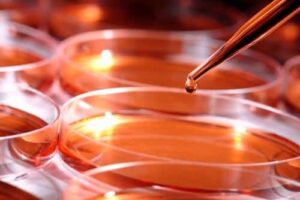
Considering the amount of research that depends on the optimal integrity of human biospecimens, the preservation and degradation of human biospecimens themselves has been an ongoing focus of scientific research. While some stakeholders share best practices for preserving biospecimens, others have searched for and evaluated molecular markers of degradation.
Biospecimen procurement and transport are fraught with peril
Various healthcare systems have protocols in place to help ensure that the biospecimens used for clinical or research purposes are suitable enough to produce only the most accurate analytical results. However, depending on the sample type, there are a number of reasons why a biospecimen may not be usable. For example, blood samples can clot or undergo hemolysis, or urine may not be collected with enough preservative. Overall, any sample type may become contaminated during the collection process or undergo physical degradation because of delayed or insufficient refrigeration or freezing.
When it comes to mammalian cells and tissues, time is of the essence once the samples have been extracted from their natural environment, where the blood nourishes them with food and oxygen. Extraction sets off a cascade of events that includes respiratory distress, electrolyte imbalance, and the disintegration of proteins, RNA, and DNA, according to researchers from Yale University School of Medicine. In a study published in the journal Laboratory Investigation, they noted that there are ways to arrest this process, but varying degrees of degradation may occur before such methods are employed.
To understand this process better, the researchers exposed four cell lines and 64 specimens - obtained through surgery or autopsy - to room temperature settings of different lengths of time before applying preservation methods. Through the use of two-dimensional fluorescence difference gel electrophoresis, in conjunction with mass spectrometry, the study authors discovered 26 proteins that can act as indicators of degradation.
"Our identification of universal [tissue degradation indicators] may yield a transformative platform dedicated to specimen quality control."
"Our identification of universal [tissue degradation indicators] may yield a transformative platform dedicated to specimen quality control," they wrote in Laboratory Investigation.
Best practices will help laboratories
Before such a platform is universally available, clinics that collect human biospecimens need to remember to apply the most appropriate preservation techniques, many of which were shared by laboratories and government agencies, such as the National Cancer Institute (NCI). For example, the NCI discussed the utility of flash freezing in liquid nitrogen, embedding biospecimens in OCT medium, and preserving tissue in formalin. The method that is employed may be determined by the availability of surplus tissue. If the surplus is limited, the prioritized order of biospecimen preservation is flash frozen, formalin fixation, OCT embedded, and RNA stabilized.